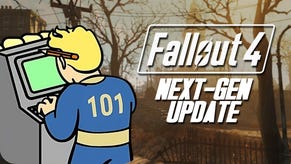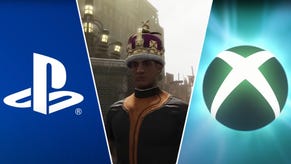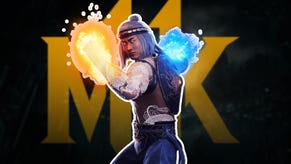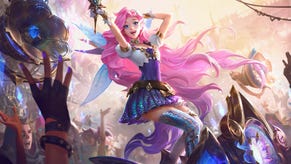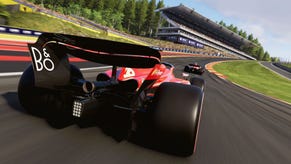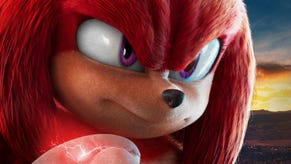Interview: The Secret of Donkey Kong Country's Redemption
How Eastern and Western Nintendo talent joined forces to pull DKC out of its late-'90s slump.
This article first appeared on USgamer, a partner publication of VG247. Some content, such as this article, has been migrated to VG247 for posterity after USgamer's closure - but it has not been edited or further vetted by the VG247 team.
Take a look at USgamer's Donkey Kong Country: Tropical Freeze review and you'll see my opinion on Nintendo's giant ape recently did an about-face. And I'm sure this phenomenon isn't limited to me alone; 1999's Donkey Kong Country 64 did its best to scare gamers away from the prospect of a traditional DK platformer, which is probably why its star found himself in puzzle games and at the mercy of bongo-based controller input for the following decade.
2010's Donkey Kong Country Returns saw the series in the capable hands of Metroid Prime developer Retro, with Nintendo veteran Kensuke Tanabe on board as their secret weapon. Though he isn't one of Nintendo's best-known developers, Tanabe worked on what can safely be called some of the best games of all time — having directed Super Mario Bros. 2 (the U.S. version) entitles him to at least several statues built in his honor. And, in a recent chat with Tanabe and Retro's Michael Kelbaugh and Vince Joly, it was clear to see how this classic Nintendo know-how informed Tropical Freeze's brilliant design.
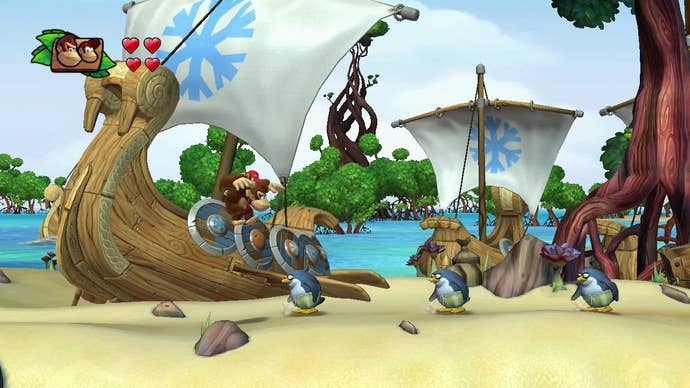
With all of the hemming and hawing over Wii U games failing to take advantage of the system's unique controller, it can be frustrating to see yet another release that could easily work on any other console—though we're at least saved from the shame of a Nintendo game forcing us to blow into another microphone. When I asked about Tropical Freeze's extremely basic input, Kelbaugh and Joly were quick to remark about the intentionality of this choice. Dropped into a retail world where competing consoles are pumping out graphics far above the limits of the WiiU, Retro decided to go with single-screen play for Tropical Freeze in order to show off the full potential of the Wii U: The game runs at a solid 60 frames per second, with lots of tiny details you won't notice unless you're paying attention — squint and you'll spot the penguin enemies giving one final salute when an 800-pound gorilla pounces on their heads. Being unable to split the action between two screens makes for a pretty lackluster two-player mode, but Tropical Freeze sits up there with Rayman Legends in terms of pure 2D platforming beauty.
Not to discount the work of Retro, but Tanabe's design philosophy definitely calls back to the best of Nintendo's catalog, and my questions about certain tropes of modern games revealed Tropical Freeze is built on a 30-year foundation of timeless ideas. I noticed that Tropical Freeze makes no explicit attempt to teach the player — it's actually pretty demanding from its very first stage. When I brought up the topic of tutorials, Tanabe erupted with mock anger about the issue that drew some laughs from his fellow Nintendo staffers.
"Personally, I really, really detest tutorials," he said. "When I pick up a game, I want to play it! So when a game is holding my hand, telling me 'Hey, do this,' and 'Hey, do that,' I'm like, will you just let me play already!?'" Aside from some aggravating exceptions — like Navi from Ocarina of Time — Nintendo games have traditionally avoided talking down to the player, and Tanabe emphasized the importance of this approach with a level of candor uncommon among normally guarded Japanese developers.
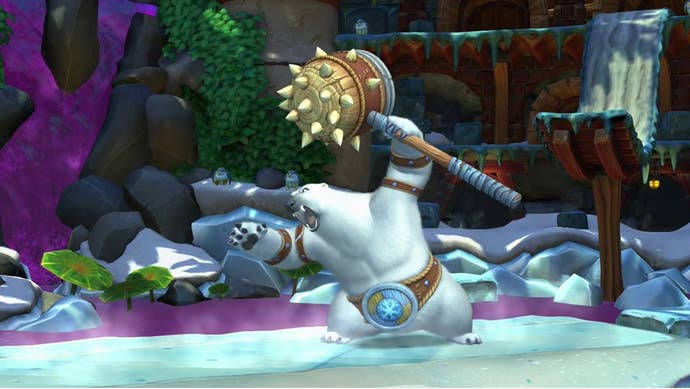
"For games that I'm working on, I do not want to include tutorials," Tanabe continued. "Think back to the older generation of games — those games did not include tutorials. It could be because some of those games were really simple, but, players would learn the control scheme, they would learn what to do and how to do it, and all of that was very carefully calculated by the designers. I believe the addition text-based tutorials really is just a way for the developer to work around having to put in the work necessary to create a game that doesn't need that tutorial in the first place."
There's no doubt that Tropical Freeze is a tough game, and while it dishes out extra lives on a regular basis, you may spend a dozen of them figuring out the timing on a particularly tricky spot. This focus on challenge was intentional, and when I asked Tanabe about Tropical Freeze's difficulty, he in turn asked me what I thought of the original Donkey Kong Country, since he worked on the Japanese localization of Rare's 1994 reboot and found it particularly hard to finish. This sense of hardcore platforming carries over into Tropical Freeze, though Retro wasn't worried about alienating less-proficient players.
"If we had made it easier, it really wouldn't have been a Donkey Kong Country game," said Kelbaugh. "So the challenge was 'How do we make it true to the franchise of Donkey Kong Country yet make it more accessible for less-skilled players?' And we added features to make it more accessible for a younger audience... These features are at the liberty of the player to choose: You can choose to play without those features — at a higher skill level — or you can choose to use features which make the game a little more accessible."
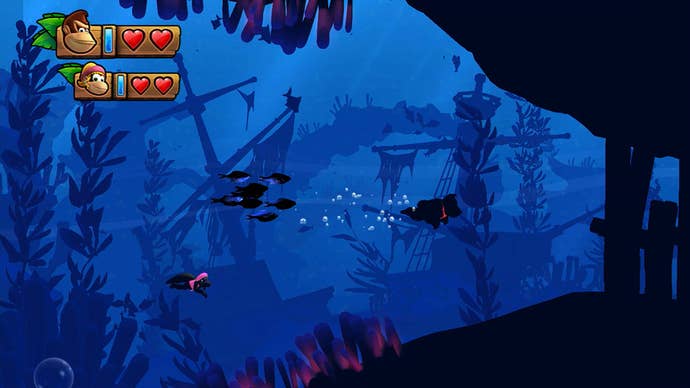
Of course, even during an interview Donkey Kong Country, Metroid Prime was the elephant in the room; Retro hasn't touched this series since 2009's tragically limited release of Metroid Prime Trilogy, and 2010's Metroid: Other M certainly tarnished the Metroid name with some of its baffling design and narrative choices. When I tossed out my obligatory Metroid question, it was met with the expected non-answers that still held hope for the future of the series.
"You're not going to find a larger bunch of Metroid of Metroid Prime fans than at Retro studios," said Kelbaugh. "We'll be lucky to someday, maybe, work on another one. There's a lot of people in the studio left over from Metroid Prime that are very passionate about Metroid... If the fans keep asking, then maybe we'll answer."

